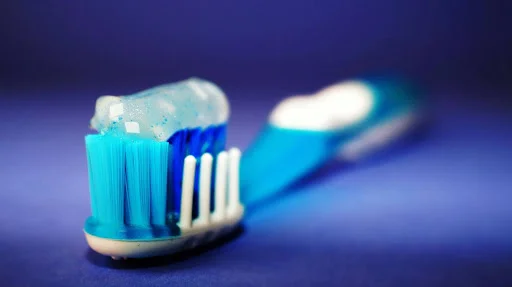In recent years, more consumers have become conscious of the ingredients in personal care products, with many transitioning to natural options. This shift is particularly relevant in the realm of dental hygiene, where the implications for oral health can be significant. An increasing number of individuals are realizing that what they put in their mouths matters just as much as the foods they consume. Many conventional dental products contain synthetic chemicals that may pose risks, prompting a growing interest in natural dental products that prioritize safety and effectiveness.
Understanding the Risks of Conventional Dental Products
Conventional dental products, including various toothpastes, mouthwashes, and whitening agents, often contain ingredients that can be harmful. Chemicals like sodium lauryl sulfate (SLS), artificial sweeteners, and preservatives may cause sensitivity or allergic reactions in some people. Fluoride has long been a controversial ingredient due to its potential health risks. Studies have linked high levels of fluoride to dental fluorosis and other health issues when ingested in large quantities. Consequently, many consumers are choosing to use toothpaste without fluoride and opting for products designed with natural ingredients that pose less risk. As awareness grows, more individuals are rethinking their daily oral care routines in favor of safer, more transparent alternatives.
The Benefits of Natural Ingredients
Natural dental products often incorporate ingredients like essential oils, baking soda, and activated charcoal, which have been shown to improve oral health without the harmful side effects of synthetic chemicals. Essential oils such as peppermint and tea tree oil not only provide a refreshing taste but also possess antibacterial properties that can help combat bad breath and promote a healthier oral environment. Baking soda is a classic ingredient that gently whitens teeth while neutralizing acids in the mouth, potentially reducing the risk of cavities. Activated charcoal, renowned for its detoxifying properties, is believed to remove stains without the abrasiveness of traditional whitening methods.
Eco-Friendly Choices for Sustainable Living
Switching to natural dental products doesn’t just benefit individual health; it also contributes positively to the environment. Many natural brands prioritize sustainable practices, using biodegradable packaging and eco-friendly ingredients. The manufacturing processes for these products tend to generate less pollution and waste. Furthermore, by refusing to purchase conventional products that often contain harmful chemicals, consumers are promoting a healthier planet overall. Small changes in personal choices can lead to significant benefits for the environment, making it essential for individuals to explore more eco-conscious options.
How to Transition to Natural Dental Products
Transitioning to natural dental products can be a straightforward yet impactful change. Begin by evaluating your current products and identifying those that contain potentially harmful ingredients; then, look for natural alternatives. Many brands offer fluoride-free toothpaste and naturally sourced mouthwashes that replace artificial ingredients with gentler options. It may take some time to acclimate to the taste and texture of natural products, so it’s wise to be patient. Experimenting with various formulations and brands helps pinpoint what works best for your individual preferences, ensuring your oral hygiene routine is effective and satisfying.
The Growing Trend and Public Awareness
The rise in demand for natural dental products reflects a larger trend in consumer preferences. Awareness of health and wellness issues has pushed the conversation surrounding personal care items into the spotlight. Social media and influential health advocates have contributed to this movement, sparking curiosity among consumers eager to learn about alternative products. As more people share their positive experiences with natural options, the market for these products continues to grow. Overall, switching to natural dental products presents an opportunity to enhance oral hygiene while also promoting personal and environmental health.
Reading Labels and Making Informed Choices
Making the switch to natural dental products requires more than just grabbing the first item labeled “natural” off the shelf. Consumers should take time to read ingredient lists carefully, as marketing terms are not always regulated and can be misleading. Look for products that list their ingredients and avoid vague descriptors like “fragrance” or “proprietary blend,” which can mask potentially harmful substances. Third-party certifications, such as USDA Organic or EWG Verified, can provide additional assurance of quality and safety. Being an informed shopper not only supports better oral health but also encourages transparency and integrity within the personal care industry.
Choosing natural dental products is more than just a wellness trend—it represents a conscious shift toward healthier living and greater environmental responsibility. As more individuals become aware of the potential risks associated with conventional dental care items, they are taking steps to reduce exposure to synthetic chemicals and prioritize ingredients that are gentle yet effective. This change is not only about avoiding harm but also about supporting long-term oral and overall well-being. Natural options often reflect a broader lifestyle philosophy, one that values transparency, sustainability, and informed decision-making. By reading labels, asking questions, and seeking out trustworthy brands, consumers are playing an active role in shaping a market that rewards honesty and accountability. Embracing natural dental care isn’t just a personal choice—it’s a small but meaningful way to contribute to a healthier future for individuals, communities, and the planet as a whole.







